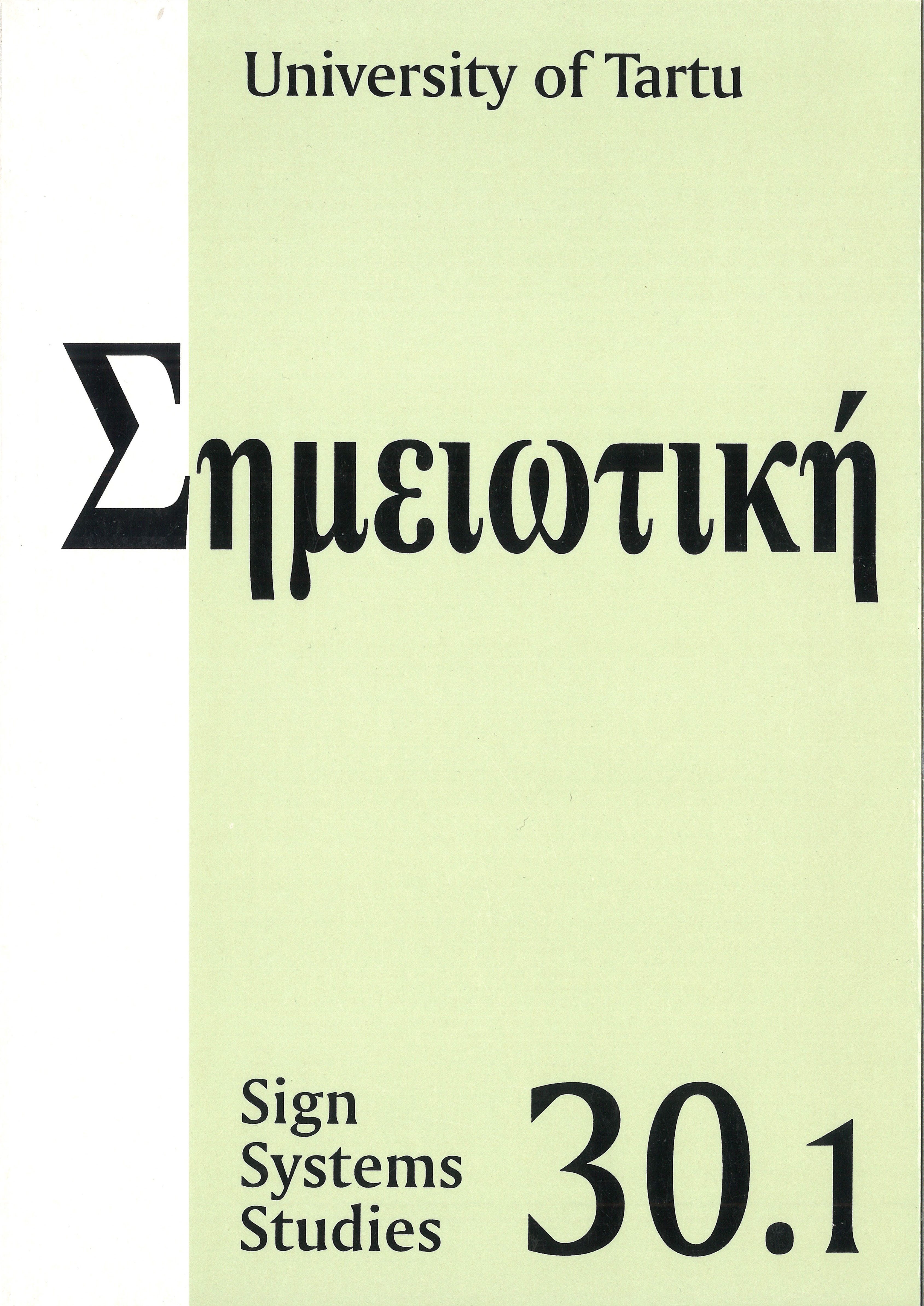Feeling the signs: The origins of meaning in the biological philosophy of Susanne K. Langer and Hans Jonas
DOI:
https://doi.org/10.12697/SSS.2002.30.1.11Abstract
This paper describes the semiotic approach to organism in two proto-biosemiotic thinkers, Susanne K. Langer and Hans Jonas. Both authors develop ideas that have become central terms of biosemiotics: the organism as subject, the realisation of the living as a closed circular self, the value concept, and, in the case of Langer, the concept of symbol. Langer tries to develop a theory of cultural symbolism based on a theory of organism as a self-realising entity creating meaning and value. This paper deals mainly with what both authors independently call “feeling”. Both authors describe “feeling” as a value-based perspective, established as a result of the active self interest manifested by an organic system. The findings of Jonas and Langer show the generation of a subject pole, or biosemiotic agent, under a more precise accent, as e.g. Uexküll does. Their ideas can also be affiliated to the interpretation of autopoiesis given by the late Francisco Varela (embodied cognition or “enactivism”). A synthesis of these positions might lead to insights how symbolic expression arises from biological conditions of living.


